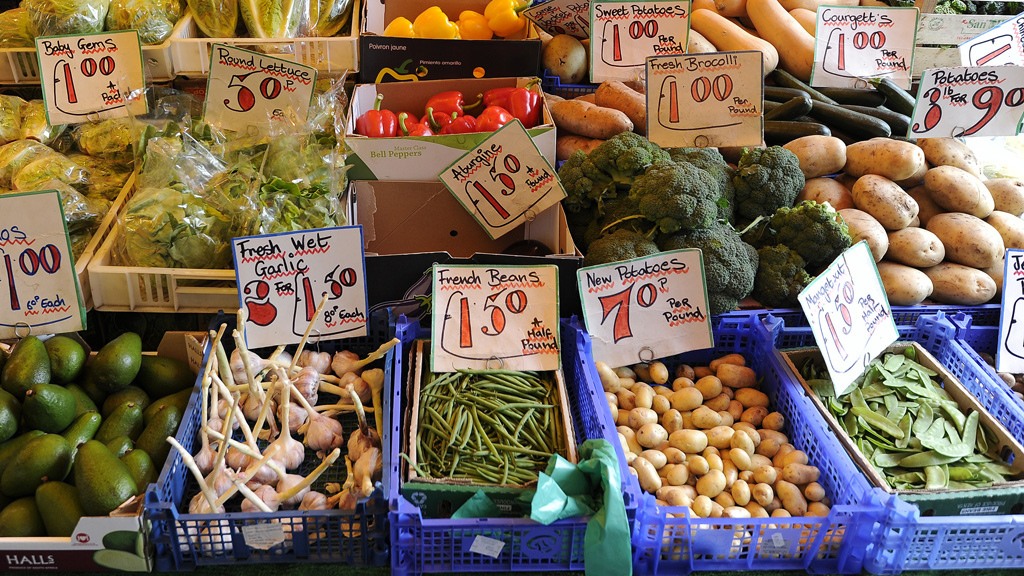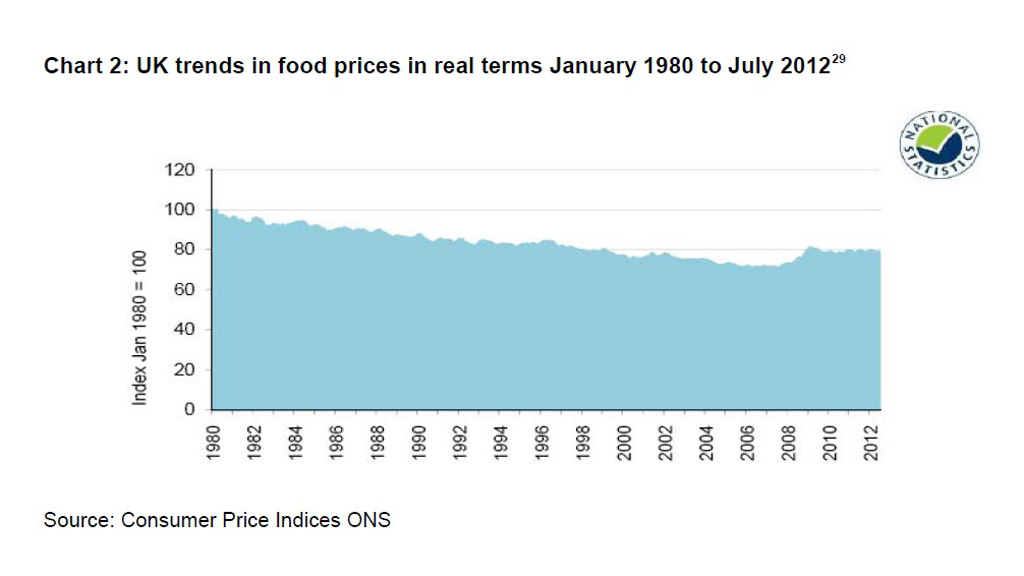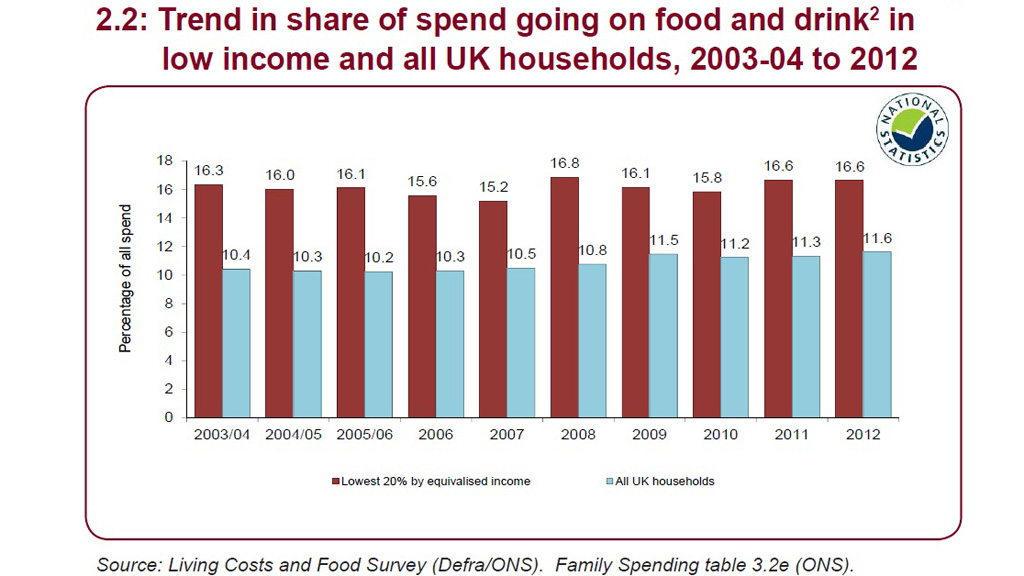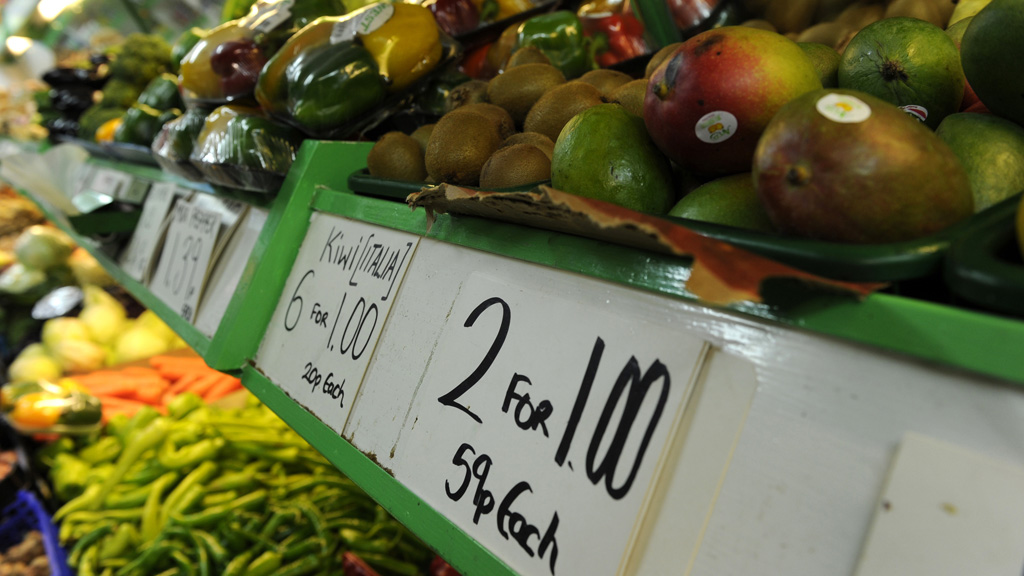Are families too poor for a decent diet?
Hundreds of public health experts write an open letter to the prime minister saying rising food prices and stagnant wages are creating a public health emergency. Channel 4 News looks at the evidence.

The letter was published in the Lancet medical journal and signed by 170 members of the UK Faculty of Public Health (FPH) professional body.
It urges the goverment to set up an independent working group to monitor nutrition and hunger.
It says: “There is a worrying gap in health circumstances and outcomes between rich and poor people in the UK. Complex though the reasons for this inequality are, the reality is that many hardworking families in the UK are living in poverty and do not have enough income for a decent diet.
“UK food prices have risen by 12 per cent in real terms since 2007, returning the cost of food relative to other goods to that in the 1990s.
“In the same period, UK workers have suffered a 7·6 per cent fall in real wages. It therefore seems likely that increasing numbers of people on low wages are not earning enough money to meet their most basic nutritional needs to maintain a healthy diet.
“We should not accept this situation in the UK, the world’s sixth largest economy and the third largest in Europe.”
The letter also highlights the rising numbers of people using food banks, saying: “More and more households, now including those in work, find themselves unable to afford a decent diet. Reliance on food aid should not be part of any modern, society-wide and evidence-based approach to public health policy.”
It adds says that food price inflation “has translated into families cutting back on fresh fruit and vegetables and buying cheap, sweet, fatty, salty, or processed foods that need little cooking”.
Signatories include Professor Tim Lang, who has advised the government and the World Health Organisation on food policy, and Dr Tony Jewell, the former chief medical officer for Wales.
The evidence
The letter refers to Office for National Statistics Figures showing rising food prices and stagnant wages since the 2007 economic crisis.
Real-terms rises in the cost of food means a basket of groceries is back to the level of the late 1990s, although the long-term picture is one of falling prices.

Poorer households tend to spend a higher percentage of income on food than those more well-off.
Figures from the Department for Environment, Food and Rural Affairs show a rise in the proportion of spending among the lowest 20 per cent of earners since 2007.
But there is little significant change over ten years.

Are people choosing cheaper, less healthy food?
Defra figures on food spending present a mixed picture. Households spent less on unprocessed meat, fish fruit and vegetables in 2012 compared to 2007, but they also cut down on sweets and soft drinks.
People continue to eat less salt, sugar and saturated fat, in keeping with long-term trends. But the consumption of most vitamins and minerals, while meeting minimum guidelines, fell between 2009 to 2012.
Fewer men, women and children were getting the recommended five portions of fruit and veg a day in 2011 compared to 2007, according to Defra.
An Institute of Fiscal Studies report into eating habits before and after the recession found that “the average quality of foods purchased by each household type declined”, with all kinds of household eating more processed food.
The IFS noted that food prices had risen more quickly in the UK than in other leading economies, and said British pensioners, single parents and households with young children had “experienced a larger decline in the nutritional quality of foods purchased” than others.
The government pointed to OECD figures published in March which show the number of people in the UK who say they do not have enough money to buy food.
Some 8.1 per cent of people surveyed fell into that category – less than the average for the EU or OECD area and less than the 9.8 per cent pre-crash figure under Labour.

Changing spending habits
A recent study by the Social Market Foundation found that middle earners had managed to cut their food bills and beat inflation by switching to cheaper products.
An investigation by Channel 4 News Dispatches last year found that fresh fruit and vegetables were up to 35 per cent cheaper in markets and local shops than in supermarkets.
A similar survey by thisismoney.co.uk produced very similar results, suggesting it still pays to shop around for healthy food.
But Defra stats question how easy it is for the lowest earners to cut their grocery bills by “trading down” to cheaper alternatives.
While the average household traded down to to save nearly 6 per cent, the bottom-earning 20 per cent only managed to save 1 per cent “possibly as they were already buying cheaper products”.
Food banks
The Trussell Trust, which runs most of Britain’s food banks, said it gave 913,000 people emergency food for three days in 2013/14. This compares to 347,000 people the previous year and 129,000 in 2011/12.
Sceptics have queried how far this can be used as evidence of a rise in food poverty, pointing to a lack of research into why people turn to charities for free food.
A Defra-commissioned research paper published in February also highlighted a lack of hard evidence.
A recent article in the British Medical Journal tracked the rising use of food banks alongside cases of malnutrition in hospitals, suggesting both measures could be evidence of a looming “public health emergency”.
The number of malnutrition-related admissions to hospitals in England has doubled since 2008-09, the authors said.
-
Latest news
-
FactCheck: Our analysis finds one in nine maternity services ‘double downgraded’ since 2022

-
FactCheck: Labour claims rail reforms would save taxpayer £2.2bn a year

-
‘Authentic Stupidity’: Ben Elton’s new show explores how idiotic human beings can be5m

-
Is Israel’s evacuation of Rafah the precursor to full scale invasion?3m

-
Eurovision: Non-binary artist wins for first time2m

-




